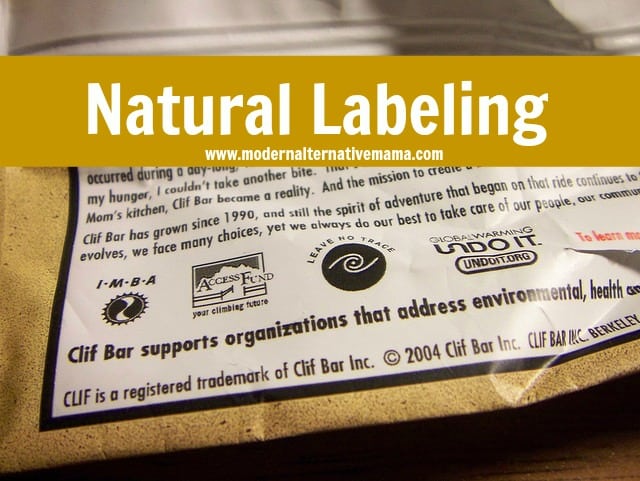These days, there’s a lot of controversy over using the word “natural” on products. In fact, there is no standard for the natural label at all. This opens up a lot of arguing on what can be considered “natural” and a lot of rather fraudulent (in my opinion) use of the term.
Why “Natural” on Labels Means Nothing
Go to a grocery store and you’ll see almost everything labeled as “all natural!” or some version of this claim on the label. It’s important that you understand that there is NO regulation on the use of this term, so manufacturers slap it on everything in order to trick you into thinking that a particular product is good for you. They are aware that consumers really want food that is natural, and since they can’t use the term “organic” (which is fairly tightly regulated), they use “natural” instead. But anything can be termed natural and that doesn’t mean it’s at all natural in any way.
For example, mineral oil and high fructose corn syrup are considered, by some, “natural” because they are derived and refined from originally natural ingredients! It’s true that mineral oil is derived from petroleum, and that this is a naturally-occurring substance. But it does not belong in our bodies or on our skin, it is not “natural” to us.
It’s also true that HFCS is derived from corn, which of course is a natural food. But first of all, that corn is probably genetically modified. And second, it (and the mineral oil) are highly refined. It doesn’t matter if something originally came from the purest substance in the world, if it is refined, it is no longer natural.
Just because something was derived from an originally natural substance doesn’t mean it’s still natural. If we take potatoes and chop them, fry them in vegetable oil, dehydrate them, and otherwise “mess” with them, we consider that junk food. Because it’s highly processed, and not healthy for us. We don’t say, “Well, it came from potatoes, so it must be healthy!”
Read The Real Ingredients
When you are reading labels on a product, be very careful. “Natural” means nothing, so ignore it outright. Read the ingredients instead, and if you see any of these things, run far away!
- Natural flavors
- FD&C colors
- Artificial flavors
- Spices (if it says “oregano,” fine; if it just says “spices;” bad)
- Autolyzed, hydrolyzed anything
- Yeast extract
- Nitrites
- Nitrates
- MSG
- Anything you don’t recognize or can’t pronounce
These days it’s hard to know what to eat, so I recommend that you eat things as close to their natural state as possible! That is, locally grown and harvested, organically produced, and not packaged/processed. Only this way can you ensure your food is truly healthy.
Since that’s not always possible, at least read your labels carefully and recognize that “natural” doesn’t necessarily mean anything.
Further Reading:






